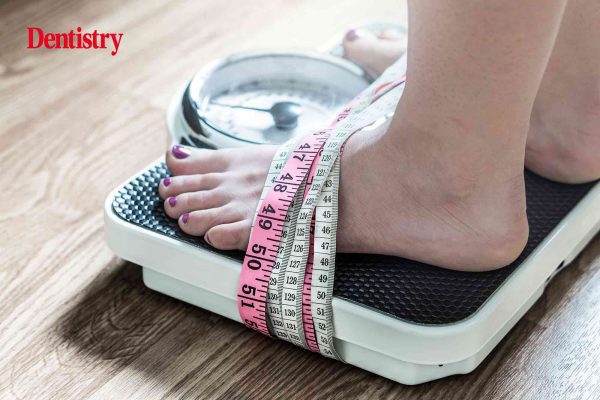Dental teams are well positioned to identify and take action when it comes to early signs of eating disorders.
According to the Oral Health Foundation, the dental profession could make a key difference when it comes to those with eating disorders like anorexia and bulimia.
Around 1.25 million people in the UK are affected by an eating disorder. Many of these can be recognised by a range of common problems in the mouth.
For example, nine in ten (90%) patients with bulimia and one in five (20%) with anorexia suffer from enamel erosion. Other symptoms include tooth decay, sensitive teeth, dry mouth and enlarged salivary glands.
The charity believes thousands of undiagnosed eating disorders are picked up during regular dental check-ups by all members of the dental team.
Dentistry’s top stories
- Fresh investment in UK dentistry following sale of DD
- ‘This is how NHS dentistry will die’ – 75% of dentists likely to reduce NHS commitment in next year
- NHS dentists feel ‘chewed up and spat out’, BDA warns MPs
- Cost of living pressures – NHS dental charge freeze is crucial
- Ever dreamed of working in dentistry on a remote island?
New strategy needed
Chief executive of the Oral Health Foundation, Dr Nigel Carter, says: ‘During the routine dental examination, dental teams carry out checks on the hard and soft tissues of the mouth and look for signs of tooth erosion. They will also look for possible injuries to the mouth
‘These could have been induced by inserting foreign objects that cause a person to vomit.
‘The UK needs a far better strategy for diagnosing eating disorders early. The sooner an eating disorder is suspected or recognised, then the more effective treatment will be.
‘This treatment extends far beyond any damage caused to the mouth. It is also necessary to instigate wider medical referrals to those who specialise in treating eating disorders.’
In the UK:
- Around 275,000 people suffer from binge eating disorders
- 235,000 have bulimia
- 100,000 are diagnosed with anorexia.
Undetected
Dr Carter adds: ‘As well as erosion through stomach acid, dental teams will also be able to detect conditions such as tooth decay, from excessive sugar consumption and signs of nutrient deficiencies.
‘If they suspect that a person might be suffering from an eating disorder, they will be able to talk calmly through the clinical signs they are seeing in the mouth. They might also speak about prescribing a high fluoride toothpaste or varnish to protect your teeth from decay.
‘The more open and honest patients can be with their dental team, the better they will be able to help. Your dental team can be trusted to help you and will not judge you over any symptoms you are having.’
The Oral Health Foundation is currently running National Smile Month, a campaign that champions the importance of having good oral health.
Brooke Sharp, clinical advice coordinator at Beat, the UK’s eating disorder charity, says: ‘Eating disorders impact around 1.25 million people in the UK of all ages, genders and backgrounds. You cannot tell if someone has an eating disorder by looking at them.
‘This means that eating disorders can go undetected for a long time. However, physical signs of an eating disorder, such as dental erosion or sensitivity can occur, mean that dentists may be among the first to observe the signs and symptoms.’
Tina’s story
Tina McGuff is a mother of four children. She has struggled most of her life with anorexia and obsessional exercise behaviours.
She has now fully recovered and lives a healthy life. Currently, she is helping to educate others on mental health and how to cope with different needs.
‘I could see the impact it was having on my oral health, and I was eventually hospitalised in a psychiatric ward as a teenager,’ she says.
‘There were a lot of problems with my teeth even at that time because I was sick all the time.’
Constant stomach acid on teeth can erode the tooth’s enamel. As the teeth are weakened, it is also important not to brush straight after being sick as this could further damage the teeth. Instead, simply rinse with water or use a safe fluoride mouthwash recommended by your dentist.
Tina explained that she assumed the dentist would simply be able to fix everything, and that it would not impact her dental health going forward.
‘It is so good that awareness is now being raised as to how eating disorders can impact your mouth,’ she adds.
‘All the sugary things I ate to get back to normal eating meant my teeth were always being attacked.’
Follow Dentistry.co.uk on Instagram to keep up with all the latest dental news and trends.


